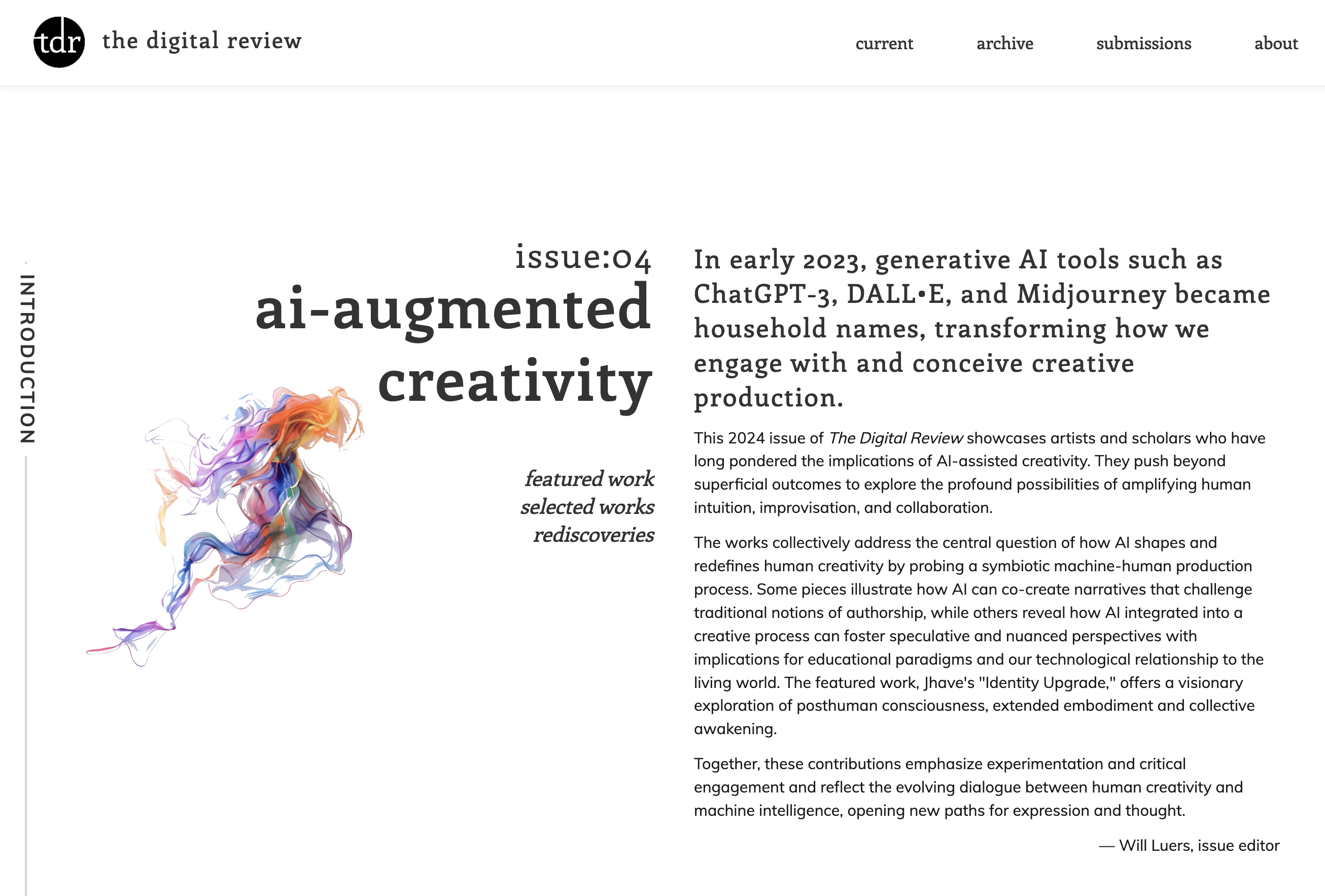

The Digital Review is an annual online journal of digital writing with a focus on the born-digital essay. Each theme-based issue will offer a curated combination of commissioned work, submitted work, restored past work and re-designed public domain work.
For more information and how to submit, please visit the Call for Submissions

Call for contributions for special issue “Celebrating Joseph Tabbi and 30 Years of electronic book review”
A special call for papers celebrating the work of Joe Tabbi—electronic book review's founder and long-term editor-in-chief—which will be published in a special issue of electronic book review during the journal's 30th anniversary year.

Lost in The Backrooms [or How I Learned to Love the Liminal]
Experimental storyteller and digital artist Mez Breeze explores the liminal spaces of The Backrooms, a found footage web series which is based on a popular creepypasta of the same name. In doing so, Breeze confronts the feelings of alienation and predation inherent to late-stage capitalist society.

Advertising with AI – On the presentation of authorship of ChatGPT-generated books
Tuuli Hongisto explores the problems of cyborg authorship through the presentation of ChatGPT as a co-author of literary works on Amazon. Rather than shying away from admitting that an AI took part in the writing process, these authors position ChatGPT and other LLM's as authors with their own rights, rather than tools.
William Gaddis at his Centenary
December 2022 was William Gaddis’s centenary year, marked that October by an archival exhibition and academic conference at Washington University St Louis, whose Olin Library special collections hold his archive. December 2023 then marked 25 years since Gaddis’s death. Over the past decade, he has been published, reprinted, translated, namechecked, served by globally public discussion forums, at a greater rate than ever during his lifetime. This special issue of electronic book review brings together work on Gaddis at this distinctive time in his reception. This gathering focuses particularly… continue

